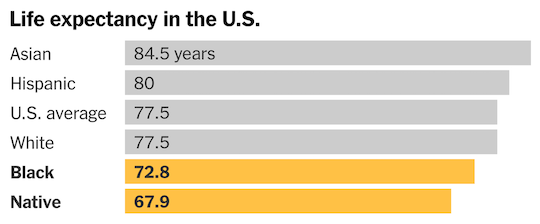This is by David Leonhardt of the New York Times, in that paper’s daily email of yesterday. It is a good example of a liberal confronted by facts that refute his ideology, who can see truth off in the distance but can’t quite get there:
Two economists — Ran Abramitzky of Stanford and Leah Boustan of Princeton — embarked on an ambitious project more than a decade ago. They wanted to know how the trajectory of immigrants to the United States had changed since the 1800s. To do so, Abramitzky and Boustan collected millions of tax filings, census records and other data and analyzed upward mobility over time.
Their findings, published in a 2022 book titled “Streets of Gold,” received widespread attention. The data showed that recent immigrant families had climbed the country’s ladder at a strikingly similar pace to immigrant families from long ago, even as the profile of those immigrants has changed. “The American dream is just as real for immigrants from Asia and Latin America now as it was for immigrants from Italy and Russia 100 years ago,” Abramitzky and Boustan wrote.
Which is what we conservatives have been saying all along.
The findings were surprising partly because the American economy has been so disappointing over the past few decades.
Heh. Now he tells us. The pre-covid Trump administration was an obvious exception to that gloomy assessment. But on to the main point:
This encouraging pattern obviously challenges the dark view of recent immigrants that conservatives [What conservatives are those?] sometimes offer. Yet it also challenges one part of the liberal consensus — about affirmative action.
Until the Supreme Court banned race-based affirmative action last year, many beneficiaries were descendants of recent immigrants, from Latin America, Africa and elsewhere. But if immigrant families are making progress more than the average American family, did they need affirmative action?
Good question! Here is the rub:
And now that the old policy is gone, which groups of Americans are truly vulnerable?
You can see the answer coming.
The continued existence of anti-Asian or anti-Hispanic hate — or antisemitism, which is on the rise, as Franklin Foer documents in The Atlantic — is outrageous. But it does not necessarily justify affirmative action for these groups. All of them fare markedly better on many metrics than Black Americans, or Native Americans, who have also endured centuries of oppression. Consider life expectancy:

Of course, these numbers also show that Asians and Hispanics live longer, on average, than whites. But Leonhardt can’t go there. Many other data could be brought to bear on immigration and the rationale for affirmative action. It isn’t only life expectancy; for example, immigrants like Ghanian-Americans and Nigerian-Americans earn more money, on average, than whites, as do more than a dozen categories of Asians. How is this possible if America is a white supremacist, systemically racist nation? And how can they be doing it without, as Leonhardt specifically admits, any material boost from affirmative action?
Affirmative action is a thorny issue, and reasonable people will have different views. Whatever your view, [Nikole Hannah-Jones’s] essay highlights a point worth mulling: The demise of the old version of affirmative action is likely to affect some of its previous beneficiaries much more than others. Given this country’s treatment of Black and Native Americans, they are at particular risk.
Well, that is one way to look at it. Here is another way: native blacks and Native Americans have lagged, not because of alleged racism or discrimination that somehow seems to miss Asians, Hispanics and African immigrants. Rather, they have lagged because of the policies of the Democratic Party: affirmative action, and its explicit assurances that America is racist, that opportunity does not exist apart from government, and that only a thumb on the scale can bring advancement. And on top of that, the idea that government handouts are a perfectly acceptable alternative. Maybe if they are just left alone and not victimized by racist and anti-American propaganda, native blacks will fare as well as more recent African immigrants. After fifty years of failure, it is long past time to put affirmative action out of its misery.
Notice: All comments are subject to moderation. Our comments are intended to be a forum for civil discourse bearing on the subject under discussion. Commenters who stray beyond the bounds of civility or employ what we deem gratuitous vulgarity in a comment — including, but not limited to, “s***,” “f***,” “a*******,” or one of their many variants — will be banned without further notice in the sole discretion of the site moderator.